About Credo Community Center Mens Aftercare Community Residence
THRIVE Wellness and Recovery, Inc., formerly known as Credo Community Center, provides treatment for youth and adults with substance use disorder in Watertown, New York. The facility provides a complete continuum of care to meet the diverse needs of the clients.
They offer court mandated and re-entry programs, transitional housing, dual diagnosis services and medication assisted treatment and they accept Medicare, Medicaid, and income-based payment. No one is ever turned away because of an inability to pay.
Complete Care
THRIVE provides a comprehensive approach to treatment that prioritizes whole-person wellness. Clients and families are cared for by a multidisciplinary team of clinicians, case managers, therapists, and social service providers.
Through integrative medical, mental health, and addiction recovery services, individuals and families achieve health and healing in mind, body, spirit, and relationships. The emphasis on skills development, including academic and vocational training, prepares youth and families to build stable, productive, and successful lives after recovery.
Lifelong Connections
THRIVE recognizes the critical importance of engagement and connection for those in recovery. They are committed to helping clients build robust networks of support. This emphasis on community reintegration ensures clients’ ongoing access to resources and peer support long after they have been discharged from the facility.
A central goal of the caring and compassionate staff at THRIVE is to equip clients with the tools they need to live independently. This makes the transition from treatment and back into the ordinary life of the home, workplace, and community easier and more meaningful.
Addiction Treatment Programs
Alcohol Rehab
Alcohol rehab in New York helps clients find the motivation to make a change and gives them the tools to achieve long-term sobriety. Alcohol programs address the mental, emotional, and relational issues that may contribute to addiction. You’ll learn to build a new support network that supports your long-term sobriety.
Dual Diagnosis
People with a dual diagnosis may be using substances to self-medicate. A high-quality rehab in New York can address both issues and help you reach recovery. Along with traditional evidence-based substance use treatment, clients may receive mental health counseling, medication, peer support, and other tools to help them manage their mental health.
Opioid Addiction
A treatment program in New York can give you the tools and skills you need to overcome opioid addiction and reclaim your life. These treatment programs offer detox, inpatient treatment, and outpatient care. You may receive individual, group, and family counseling, peer support, and classes in essential life skills.
Young Adult Rehab
When people join a young adult rehab in New York, they learn key life skills while receiving treatment. Along with traditional evidence-based treatment, clients may receive educational support, employment training, and help securing housing.
Adult Program
Adult programs in New York address a wide range of substance use issues while also helping clients with concerns such as raising children or building a career. Along with traditional evidence-based treatment, clients may receive employment support, parenting classes, and help securing housing.
Men's Rehab
A men’s rehab in New York addresses the unique needs men have and allows them to build relationships in a gender-specific environment. Along with traditional evidence-based treatment, clients may receive education on topics relevant to men, such as fatherhood, healthy relationships, emotional vulnerability, and more.
Insurance Coverage
Self-pay options
There are many ways to pay for rehab in New York, including self-pay. When you pay yourself, you have maximum flexibility to choose the center you most prefer. You can write a check, get a medical loan from a bank or credit union, or send money electronically. The fee structure may vary depending on the level of care.
Private insurance
There are many ways to pay for rehab in New York. One option is private insurance. Your insurance plan can pay for some or all of the costs of rehab, especially if you choose a center that’s in the plan’s network. Be sure to check with the insurer to get full details.
Medicaid
Paying for rehab in New York can be done in multiple ways, including using Medicaid if you qualify. Medicaid covers multiple levels of care, and you may have no out-of-pocket costs. However, you’ll need to choose a treatment center that accepts Medicaid.
Financial aid
Those wondering how to pay for rehab in New York may benefit from looking for financial aid programs. You may be able to find aid through community groups in your area, and individual treatment centers may offer grants and scholarships as well.
Sliding scale payment assistance
Finding a rehab in New York with a sliding scale payment plan can help make treatment more affordable. You qualify for a lower fee for detox, inpatient treatment, or outpatient care based on your income and family size.
Levels of Care
- 1
Inpatient Rehab
Inpatient treatment in New York is led by professionals who help you build new habits and skills to live a substance-free life. Residential treatment allows you to build new relationships and begin to learn how to enjoy life without substance use.
- 2
Outpatient Rehab
If you’ve recently finished a residential treatment program, participating in outpatient treatment in New York can help you reinforce and practice your new habits. Outpatient treatment includes multiple approaches, including cognitive behavioral therapy (CBT), motivational interviewing (MI), and holistic therapy options.
- 3
Aftercare Support
In New York, aftercare allows you to access additional resources and support to help you avoid relapse after treatment. The end of treatment is far from the end of the story, so take advantage of aftercare resources such as sober living, 12-step and other support groups, peer coaching, and more.
- 4
Sober Living Homes
Even after you finish treatment, recovery is a challenge. Sober living in New York can give you a safe place to live and connect you to the support you need. The end of treatment is far from the end of the story. Sober living gives you a solid foundation of support while you build your new, substance-free life.
Therapies
Family Therapy
Many people have challenging family backgrounds, and addiction can create unhealthy dynamics as well. Family therapy in New York allows you to address these concerns. Some of the topics covered in family therapy include improving communication, developing healthy coping skills, avoiding codependency and enablement, and learning to support each other in healthy ways that foster recovery from addiction.
Group Therapy
It’s easy to feel isolated when you battle addiction, but group therapy in New York can show you you’re not alone. Group therapy is a normal part of evidence-based treatment programs, and may be a part of inpatient treatment, outpatient care, or both. Topics include addiction education, sharing of experiences, and learning new skills.
Individual Therapy
Individual therapy in New York can provide professional support and accountability as you work through substance use treatment. Individual therapy is a common part of both inpatient and outpatient substance use treatment and may be used to help with skill-building, overcoming trauma, and creating a substance-free lifestyle.
Trauma Therapy
Trauma is an emotional response to a terrible event, and some people use substances to numb those emotions. Trauma-informed therapy in New York can help you address what happened and consciously create a healthier response. Trauma-informed therapy sessions generally last 60 to 90 minutes and may include discussing a specific event, talking about emotional triggers, and learning emotional regulation and cognitive restructuring skills.
Location
Contact Credo Community Center Mens Aftercare Community Residence
Top Drug Rehab Centers in New York
-
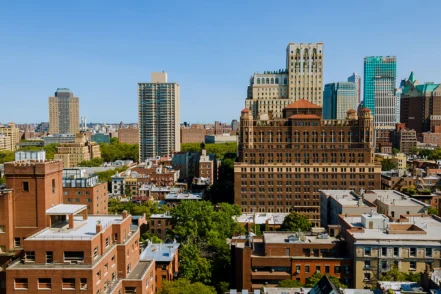 New York
New YorkRealization Center Brooklyn
175 Remsen Street Brooklyn, New York 11201
-
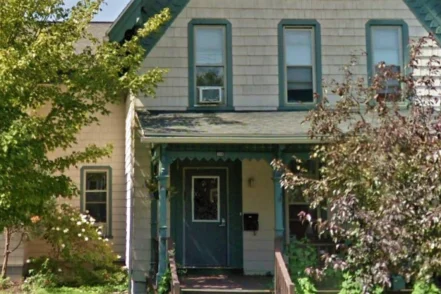 New York
New YorkCredo Community Center Mens Aftercare Community Residence
138 Winthrop Street Watertown, New York 13601
-
 New York
New YorkSaint Josephs ATRC Saranac Lake Outpatient Clinic
12983 Saranac Lake, New York 12983
-
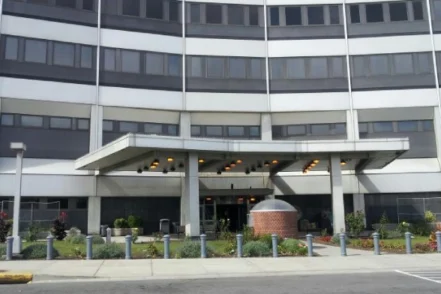 New York
New YorkBronx VA James J Peters Medical Center
130 West Kingsbridge Road Bronx, New York 10468
-
 New York
New YorkSeafield Outpatient Mineola
110 Main Street Mineola, New York 11501
-
 New York
New YorkElmhurst Hospital Center Elmhurst
7901 Broadway Street Elmhurst, New York 11373
-
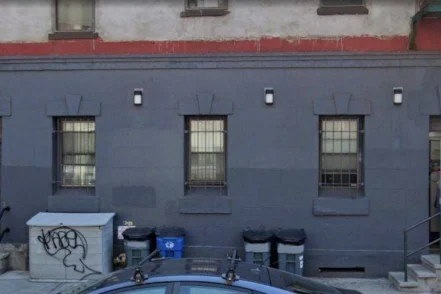 New York
New YorkLaFayette Medical Approach Outpatient
233 Lafayette Street New York, New York 10012
-
 New York
New YorkNewYork Presbyterian Westchester Division
Nichols Cottage Basement Area 21 Bloomingdale Road White Plains, New York 10605
-
 New York
New YorkParallax Center
145 East 32nd Street New York, New York 10016
-
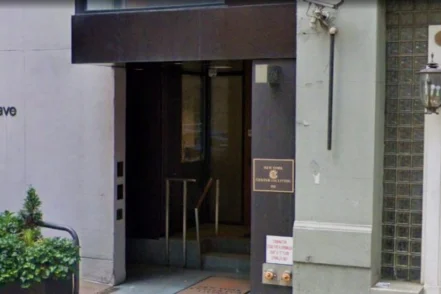 New York
New YorkNew York Center for Living
226 East 52Nd Street New York, New York 10022
-
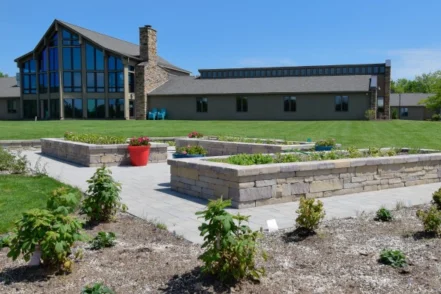 New York
New YorkTully Hill Treatment and Recovery
5821 Route 80 Tully, New York 13159
-
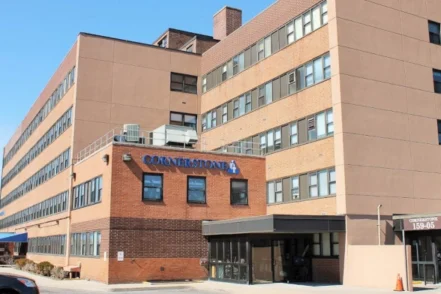 New York
New YorkCornerstone Fresh Meadows
159-05 Union Turnpike Fresh Meadows, New York 11366
-
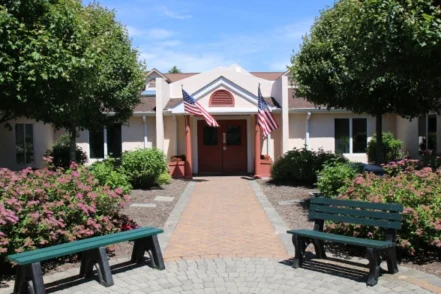 New York
New YorkLong Island Center for Recovery LICR
320 West Montauk Highway Hampton Bays, New York 11946
-
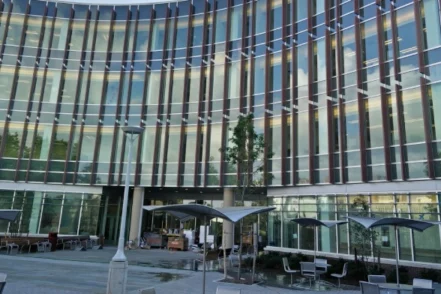 New York
New YorkBronx Addiction Treatment Center
1500 Waters Place, Building 13 Bronx, New York 10461
Other Popular New York Cities
Browse by New York cities
- Wainscott
- Walden
- Walton
- Wantagh
- Wappingers Falls
- Warsaw
- Waterloo
- Watertown
- Watkins Glen
- Waverly
- Webster
- Wellsville
- West Babylon
- West Haven
- West Haverstraw
- West Hempstead
- West Seneca
- Westbury
- Westhampton Beach
- Westons Mills
- White Plains
- Willard
- Williston Park
- Wingdale
- Woodmere
- Woodside
- Woodstock
- Wyandanch